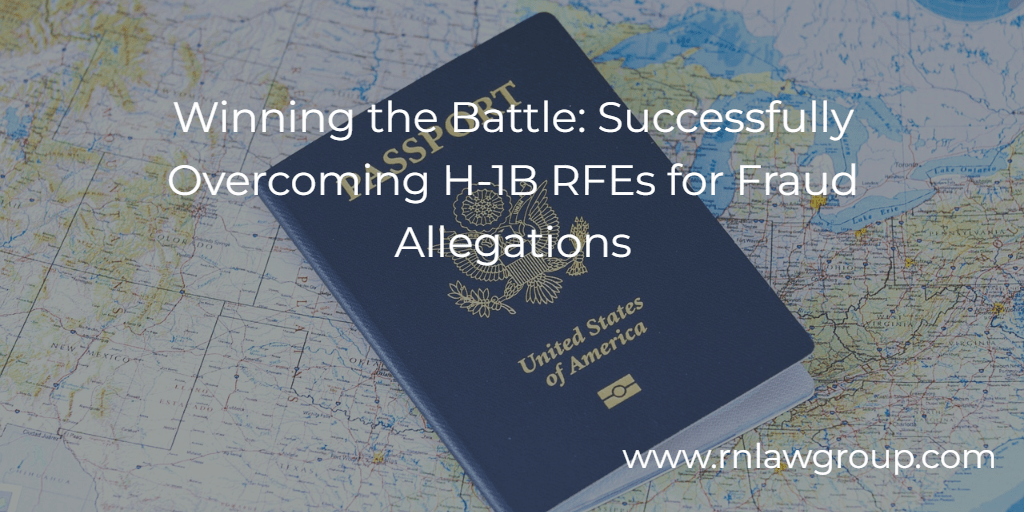
Winning the Battle: Successfully Overcoming H-1B RFEs for Fraud Allegations
In today’s competitive job market, securing an H-1B visa can be a complex and challenging process. Recently, we successfully overcame a significant obstacle for a client who was issued a Request for Evidence (RFE) alleging fraud or willful misrepresentation of a material fact (potentially due to multiple H-1B registrations). This article outlines our strategic approach and the key legal arguments that led to the successful resolution of the RFE.
Background
Our client had previously been counted against the H-1B cap for the fiscal year 2020. However, in a Notice of Intent to Deny (NOID) issued by USCIS, it was alleged that his H-1B petition was revoked due to fraud or willful misrepresentation. As a result, his visa number was restored to the fiscal year in which the petition was revoked, thus removing him from being counted against the H-1B cap. We firmly believed this decision was unjust and took action to rectify the situation.
Our Arguments
Our first argument focused on the lack of evidence provided by USCIS to support their allegations of fraud or willful misrepresentation. USCIS did not present any concrete proof that our client had committed fraud or misrepresented any material facts. Additionally, our client was not given an opportunity to respond to these allegations. Furthermore, we emphasized that our client had not made any fraudulent or misrepresented statements, as he was not directly involved as a party to the H-1B petition process. Since USCIS did not allege that he personally committed any fraud, our client should not be penalized.
Our final argument highlighted the procedural failure by USCIS to allow our client to review and respond to the allegations. According to regulation, 8 C.F.R. 103.2(b)(16), USCIS is required to provide the beneficiary with an opportunity to review the record and respond to any derogatory information. In this case, USCIS failed to provide any details or evidence of the allegations against our client, thus denying him the chance to defend himself. As a result, our client should retain his visa number and be counted against the H-1B cap.
Conclusion
The legal arguments presented in our response collectively demonstrated that USCIS had no substantial evidence to support their allegations of fraud or willful misrepresentation. We successfully overcame this challenge, and USCIS approved the H-1B petition.
This case highlights the importance of thorough legal representation and a robust response to RFEs. By carefully examining the allegations and leveraging relevant legal provisions, we were able to secure a favorable outcome for our client. If you or your employees are facing similar challenges, our team is here to provide the expertise and support needed to navigate the complexities of H-1B RFEs.
By: Felipe Jimenez
Felipe Jimenez is an Associate Attorney at Reddy & Neumann, P.C. He works in the Non-Immigrant Visa (NIV) Department where he assists clients through all phases of the non-immigrant visa process.
Reddy & Neumann, P.C. has been serving the business community for over 20 years and is Houston’s largest immigration law firm focused solely on US. Employment-based immigration. We work with both employers and their employees, helping them navigate the immigration process quickly and cost-effectively.

